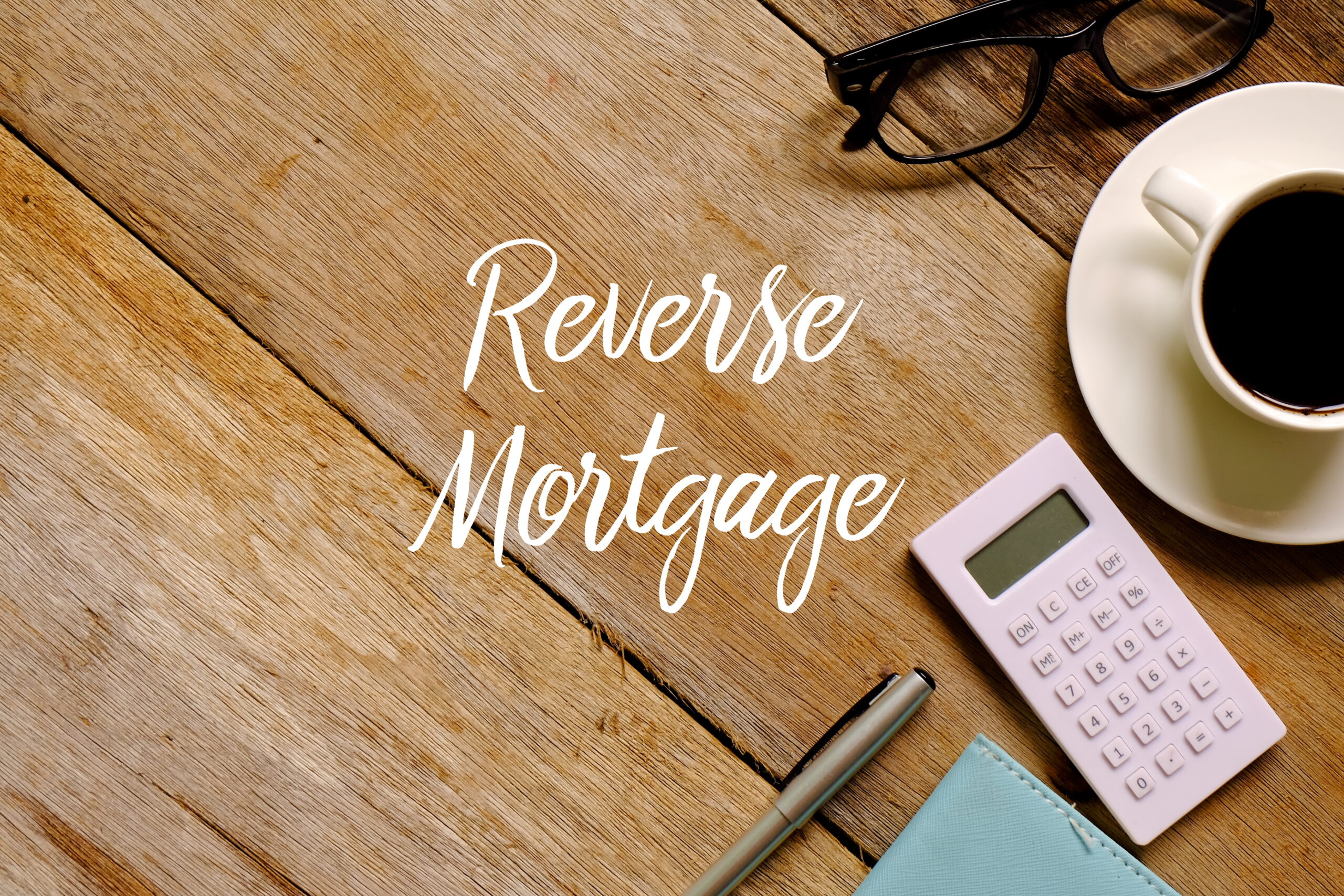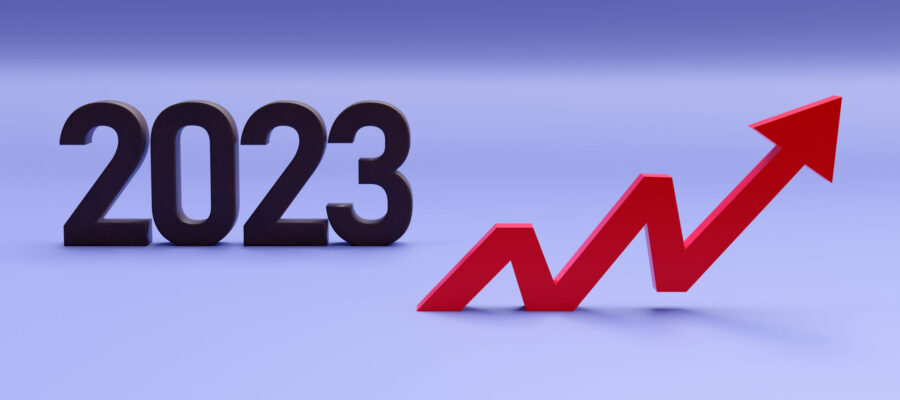Mortgage Market 2023: What’s in Store?
According to financial experts, 2023 could be a more stable year for mortgages. That’s good news for many homeowners, who could use a break after the Bank of Canada’s (BOC’s) multiple interest rate hikes in 2022.
While it’s impossible to tell the future, there are some signs that calmer weather is ahead. Here we take a closer look at what 2023 might have in store for interest rates and mortgages.
Interest Rates
The BOC raised its policy interest rate eight times last year. The rate went from 0.25% in January of 2022 to 4.5% in January of 2023.
The BOC has hinted it may leave rates at current levels for the foreseeable future. According to Global News, BOC Governor Tiff Macklem said, “We’ve raised rates rapidly, and now it’s time to pause and assess whether monetary policy is sufficiently restrictive to bring inflation back to its two per cent target.”
The rate of inflation is currently just over 6%. It could take some time to bring it back down to the BOC’s 2% goal. So, interest rates may stay higher, but remain more stable throughout the year.
The higher rates will likely mean fewer people are able to qualify for mortgages. This could have a cooling effect on the housing market.
For those who do qualify, their mortgages may be processed faster because there are simply fewer applications going through the system.
Where are mortgage rates now? They are hovering from around 4.6% to just over 6% depending on the type.
Fixed Rate Mortgages
Those with fixed rate mortgages who are planning to renew this year should be prepared to pay more interest and possibly higher monthly payments.
However, fixed rate mortgages remain a good bet as the interest rates are typically lower. Many experts are advising people interested in fixed rate products to consider locking in for a shorter term (2-3 years) in case interest rates go down.
Variable Rate Mortgages
Those with variable rate mortgages likely felt a squeeze this year as the interest rates rose. According to BOC data, eight out of 10 people have hit their “trigger rate,” meaning they are paying more interest than principal on their loans. This typically results in higher monthly payments
The good news is that if the economy remains stable this year, rates aren’t likely to go much higher. Those with variable rate mortgages can be cautiously optimistic, knowing that their monthly budgets may be relatively stable over the course of the year.
Variable rate mortgages are a good option, especially with signals that rates may come down in the future. But some patience will be required.
The Takeaway
With these rate changes, the fever that gripped the Canadian housing market may finally have broken. This year promises a more measured approach to housing and mortgages.
Of course, mortgages come in many different packages. There are no one-size-fits-all solutions. If you’re going to be renewing this year, or if you’re thinking of getting into the market for the first time, don’t hesitate to reach out. We’re always happy to help!
Things First-Time Home Buyers Do That Can Cost Them $$
Getting A Mortgage Can Be Challenging
The process of applying for a mortgage comes with many rules and new terms. It’s easy for first-time buyers to take costly missteps.
Here are a few first-time home buyer mistakes to avoid if you want to save money.
Shop Only Rate
Rates are relatively easy to discover from lending institutions and to compare. But mortgages have a number of other features that are important to consider.
Prepayment Privileges
Putting extra money towards your mortgage on a monthly or yearly basis can save you a money over the long term. But many mortgages restrict how much extra you can pay on your mortgage and when.
Open mortgages tend to be the most flexible, but they usually have higher interest rates. Variable rate mortgages typically offer good prepayment terms. Some fixed rate mortgages offer prepayment privileges too. Check your contract carefully to find out how much you can repay, and when.
Penalties
Most mortgages have penalties for breaking the contract before the term ends. Variable rate mortgages usually ask for three months of interest. If you have a fixed rate mortgage, you would likely be asked to pay three months of interest or the Interest Rate Differential (IRD), whichever amount is highest.
If you think there might be a move in your near future, opt for a shorter term, and find out what the penalties are before you sign on the dotted line.
Portability
To avoid penalties, some lending institutions allow you to “port” your mortgage. If you buy a new house, porting allows you to transfer your mortgage to the new property.
However, this process is not always as easy as it sounds. Fixed mortgages are easier to port than variable rate. In some cases, the new property has to be the same price as the initial property. If the new property costs more, you may need to consider a blended mortgage.
Cash Back
When you purchase a house, there are a number of unexpected costs such as legal fees, land transfer tax, and more.
Some lenders provide cash back on their mortgages, loaning you money on top of your mortgage amount. Many people use this money towards closing costs, renovations, or movers.
It’s important to note that opting for cash back may trigger a higher interest rate.
HELOC
Some institutions offer a Home Equity Line of Credit (HELOC) which becomes available after the house purchase is complete.
With a HELOC, you normally pay interest only on the money you use. While you do need to pay the interest regularly, you can pay the principal back on your own time, as long as you borrow less than 65% of your home’s value.
In order to qualify for a HELOC you need to put in a down payment of at least 20%, and have a good credit rating.
Don’t Wait To Get Credit In Check
Many first-time buyers don’t stop to consider their credit rating before applying for a mortgage.
Financial institutions use credit scores to determine whether to issue a mortgage, and also to decide what interest rates to charge. If you have a poor score, you will likely find it difficult to secure a mortgage. If your score is adequate but not good, you may pay higher interest rates.
You can get a ballpark idea of your credit score before you start shopping for a mortgage. If your score is below 660, consider holding off for six months or more. To improve your score, pay your bills on time, stay within your credit limit, and keep your oldest credit card accounts.
Closing Credit Cards
Since credit scores are partially calculated from your credit card history, it’s not a good idea to cancel cards before applying for a mortgage.
If you do need to cancel a card, choose one with the shortest history, and pay off all balances first. Cancelling more than one card at a time can raise red flags, so avoid this if you can.
Trusting Online Credit Score
Even though online credit scores can give you a rough idea of where you stand, these scores are not totally reliable.
Organizations that provide either free or paid credit scores use their own calculations to determine the final number. Financial institutions use a different set of calculations.
Credit reports can also contain errors. Check any report you receive to make sure it’s accurate.
Getting Online Pre-Approvals
Opting for a pre-approval is a good way to find out if you could qualify for a mortgage. It can also tell you the maximum amount an institution may be willing to lend you.
Although there are many websites advertising fast and painless pre-approvals online, they are not always trustworthy. It can also be difficult to tell the difference between pre-approval and pre-qualification.
To get a true pre-approval, work with a lender directly.
Waiting To Save More Than Is Necessary
It may seem like a good idea to wait to buy a home until you can afford to make a large down payment. In the long run, you’ll save money, but this strategy isn’t always ideal. In Canada, minimum down payments are 5%, and 20% is often recommended.
First, it can cause you to lose liquidity in your finances. Once you pay for a home, the money is locked in and you won’t be able to invest it elsewhere.
Another drawback is time. While you wait to save, you won’t build up equity in your home.
Everyone’s situation is unique. If you’re thinking about buying a home for the first time, get in touch with us. We can give you an honest assessment of your situation, and make sure you get the best value for your money.
More People Are Carrying Mortgages Into Retirement. Is This A Good Idea?
More Older Canadians Have Mortgages
Between 2016 and 2021 the number of Canadians with a mortgage over the age of 65 increased. With the Bank of Canada raising the interest rate over the past year to curb inflation, these numbers may continue to rise.
Conventional wisdom advises entering retirement debt-free. However, this view is beginning to shift. While there are drawbacks to paying a mortgage after 65, in some cases, there can also be benefits.
The Pros
There are many reasons someone may decide to either keep paying off an existing mortgage into retirement, or opt for a reverse mortgage.
Staying At Home Longer
Many Canadians are choosing to age in place, staying in their homes throughout their golden years instead of downsizing. For some, this means continuing to pay a mortgage.
Boosting Income
Some people choose to keep an existing mortgage or take on a reverse mortgage in order to invest their money elsewhere, providing cash flow in retirement. While homes prices typically appreciate over time, historically the return on investment isn’t as high when compared with a well-managed portfolio of stocks and bonds. Also, stocks and bonds can be sold piecemeal as financial needs arise.
Using money to purchase an investment property and rent it out is another way to ensure income in retirement, as long as individuals are prepared for the responsibilities of being a landlord.
Helping Adult Children
Since the costs of getting into the real estate market have gone up significantly in the past decade, more older Canadians are helping their adult children with down payments.
Opting for a reverse mortgage or paying a current contract down more slowly can help free up funds to help the next generation.
The Cons
Having a mortgage in retirement isn’t for everyone, and there are drawbacks.
Higher Interest Rates Mean Higher Expenses
Canadians with variable rate mortgages, and those who renewed their fixed rate mortgages in the past year, likely felt the discomfort of higher interest rates. Escalating mortgage rates can hurt anyone, but when living on a fixed income, they can be especially hard to manage.
Unstable Financial Markets
The last few years have led to more uncertainty in the financial markets. Talk of a recession is ongoing as markets experience volatility. If you need to generate cash flow in retirement, it’s best to be cautious when considering stocks and bonds to supplement income.
Reduced Estate
Interest on a mortgage does add up over time and can depreciate the value of an estate.
It’s also important to note that any debt owed, including a mortgage, will be deducted from the estate after death. If you choose to have a mortgage now, you may have less money to pass on to your loved ones.
What Type of Mortgage is Best After Retirement?
Finding the right mortgage for you depends on your unique financial and life circumstances. Generally, mortgages with fixed rates are good for retirees because the interest remains stable for the term in your contract. However, if interest rates come down in the near future, you’ll be paying a higher rate for longer.
If you want to pay off your mortgage faster, or believe interest rates will come down in the next year or two, you may prefer the flexibility of a variable rate.
For those who already own their own homes, you may want to consider a reverse mortgage if you need to access funds. Reverse mortgages do typically come with higher interest rates, but there’s no set repayment schedule.
Still have questions, or want to find out more? Call us today at 1-855-695-9250.
5 Mistakes First-Time Home Buyers Make
1. Underestimating Costs
Using a mortgage calculator is an important first step in deciding whether or not you can afford to buy a home. However, there are many hidden costs to home ownership that mortgage calculators and first-time buyers don’t take into account.
Remember to budget for property taxes and home insurance. You’ll also have to pay city utility bills on top of your monthly phone and cable costs.
If you’re looking into buying a condo or townhome, there will also be fees for common expenses such as maintaining amenities, building insurance and repairs.
The process of buying a home can also be expensive. Be sure to budget for home inspections, lawyer’s fees and closing fees. Closing fees alone are generally 1.5% - 4% of the final selling price.
2. Assuming They’ll Never Get Laid Off
When you’ve got a great job, it can be easy to be lulled into a false sense of security, thinking those monthly paycheques will always be there. But circumstances can change quickly.
When you own a home, you are on the hook for your mortgage payments, even if your employment changes. Skipping payments, or making them consistently late can affect your credit score.
Before you buy, make sure you have an emergency fund with enough money to cover your expenses for at least 3-6 months. Also look into mortgage insurance that can cover you and your loved ones in case your health status changes.
3. Skipping Due Diligence
Competition for homes can cause many first-time buyers to close on an offer without taking the proper steps to ensure a property is in good condition. Don’t let yourself fall into this trap.
Make sure you have the home inspected before you buy it. It can be easy to make a property look good for an open house with cosmetic changes. The inspection will give you invaluable information on the home’s condition. Without it, you could be facing unanticipated costs for repairs.
Before you sign the papers to close the sale, ask your realtor for a walkthrough. This process lets you examine the home one last time before you take full possession. If anything has been damaged, repair costs can be deducted from the final sale price.
4. Taking Pre-Approval For Granted
Mortgage pre-approvals tell you the maximum amount of money a bank will loan to you. It doesn’t guarantee that you will get a mortgage when you make an offer.
Many first-time buyers are surprised when their mortgage applications are denied after being pre-approved. This can happen for a number of reasons.
The condition and age of the home can impact the financial institution’s decision. Each lender has different criteria. For example, if the property’s wiring or pipes are not up to modern standards, your application can be denied. This is something to be especially aware of if you’re considering an older home.
Any changes in employment can also cause problems, even after a pre-approval. If possible, wait to quit or change your job until after the sale has closed.
Taking on any new debts can also be a red flag to financial institutions. If you need a new car, it’s best to wait until your home purchase has gone through.
5. Making Mortgage Decisions Alone
Yes, you can walk into a bank and apply for a mortgage, but you may not get the best rates, or the type of mortgage that best suits your needs. Mortgages are complicated, and it’s always best to get professional advice when shopping for one.
A qualified mortgage broker can guide you through the process and help save you money. If you’re a first-time home buyer with questions about purchasing a home or applying for a mortgage, contact us today. We’d love to help!
The Growing Reverse Mortgage Market
Reverse Mortgage Assets Grew 194% Over Last Year
Equitable Bank, one of Canada’s only reverse mortgage providers, recently issued a statement showing 194% growth in reverse mortgage assets year over year.
It is clear that interest in reverse mortgages is growing. This may be due in part to changes in demographics. Over 30% of Canadians are 55 or older, according to the most recent census.
A recent article in the Globe and Mail pointed out that the rise in popularity of reverse mortgages could also be a result of societal changes brought about by the COVID-19 pandemic. More senior citizens may be looking for ways to stay in their homes longer, instead of opting for more communal living arrangements.
What Is A Reverse Mortgage?
Reverse mortgages provide an opportunity for Canadians 55 years of age and older, who own their homes, to take out loans against the value of their property. They can borrow up to 55% of a home’s equity.
Houses must be in good repair, and the owners must have no other outstanding debt on the property such as a home equity line of credit (HELOC) or a mortgage.
Reverse mortgages don’t require any regular payments. Interest does accrue, but the total value of the loan can be paid off when the home is sold or after the owners have passed away.
Is A Reverse Mortgage Right For You?
Reverse mortgages are best for those with a defined plan, who intend to use the funds strategically.
One example is using a reverse mortgage to purchase an investment property. The income from the rental can be used to pay off the loan and provide valuable cash flow in retirement. A Wilson Team client was able to borrow $210,000 from the value of her $625,000 home to purchase a rental property. As a result, she increased her cash flow while leaving other investments untouched.
Another Wilson Team client used a reverse mortgage to repair the roof on her house and pay her home insurance. This allowed her to stay in her home longer than she believed possible.
Reverse mortgages can also help top up retirement income and cover healthcare costs.
Drawbacks
Like any loan, it is important to ensure this product is right for you before signing on the dotted line. Reverse mortgages do have their drawbacks.
They can have higher interest rates than other types of mortgages, and can cost more up-front. Lenders require a home appraisal and there are start-up fees.
It is also important to remember that the interest on the loan will compound over time. Even though you don’t have to pay off the loan right away, the interest will continue to increase. If you intend to defer payments for a significant time, it could reduce the amount of money that goes to you or your beneficiaries when the home is sold.
Having a reverse mortgage can also complicate matters after death. There is often a limited time-frame for the loan to be repaid after someone passes away. Many estates can take a long time to settle, which could lead to complications for your executor.
Look For Expert Advice
Your situation is unique and financial products like reverse mortgages are complicated. Always be sure to seek out good advice, and make sure you understand all the terms before committing to anything.
If you are wondering if a reverse mortgage is right for you, call us today at 613-440-0134 or 1-855-695-9250. We’re always happy to help.
Have Canadian Home Prices Bottomed Out?
October Home Sales Were Up
According to an article published by the Canadian Real Estate Association (CREA) this month, home sales in Canada may be rebounding after falling since March, when the first interest rate hike from the Bank of Canada (BOC) was announced.
Jill Oudil, Chair of CREA said, “In October, sales across the country increased for the first time since before interest rates started to rise last winter.”
Robert Hogue, assistant chief economist with RBC was cautiously optimistic about this development. He wrote, “Canada’s housing market may be entering the latter stages of its cyclical downturn.”
Will Prices Rise Too?
Although Hogue thought the October statistics signalled reason for optimism, he cautioned that prices did fall in October, and this trend may continue. “Rising interest rates and the loss of affordability will keep market activity quiet into early-2023 and prices will bottom around spring,” he predicted.
In an interview with the Financial Post, Chris Alexander, president of Re/Max Canada, corroborated this. When asked if he believed this news signalled the end of the current price correction in the real estate market he said, “I think that it’s still really early to tell,” and noted that the October increase in sales was “marginal.”
Should Home Owners Be Concerned About Falling Prices?
The steadily falling home prices have been met with concern by homeowners, especially those who are thinking of selling their homes in the coming months.
The latest statistics can be alarming. For example, the CREA’s data show that, on average, home sale prices in Canada were 9.9% lower in October of this year than in 2021. However, Alexander explained that the real estate market in 2021 was inflated. “The market was in runaway territory for almost 18 months,” he said, “And so this reprieve we’ve seen is welcomed.”
And the decline in prices seems to be slowing. Hogue noted, “Property values are still clearly coming down at this stage but last month’s drop was the smallest since May.”
Silver Linings For First-Time Homeowners
While people already in the market may be worried about falling prices, the cooled market could be good news for people looking to get into it for the first time.
Even though interest rates are high, lower prices could make owning a home within reach for some. In Ottawa, for example, the average price of a home was $624,003 in October. This represents a substantial change compared to the peak average price of $757,225 in March.
Also, a cooling market could mean fewer bidding wars, and the time to complete due diligence like home inspections before purchasing a property.
This time of year can also be advantageous. Since many people prefer to move in the spring or summer, buying in the winter can mean better value and less competition.
Thinking Of Buying?
If you are considering purchasing a new home, you probably have many questions. You may find the answers in our videos, blog posts for first-time buyers, or even better, get in touch with us today! Despite high interest rates, owning your own home may be within reach.
The Gap Between Fixed and Variable Rate Mortgages is Narrowing.
Rising Interest Rates Are To Blame
With the Bank of Canada’s prime lending rate currently at 5.95%, the cost of variable-rate mortgages is almost on par with fixed rates for the first time since 2019.
Fixed mortgage rates, which are locked in at the beginning of a term, and stay the same during that term, are typically higher than variable rates since they offer more stability to investors.
Since the Bank of Canada (BOC) has raised its interest rates six times in the past year, the costs of variable mortgages have soared. The rates for variable mortgages are tied to the BOC’s prime lending rate (usually plus or minus some percentage points).
Another rate hike is expected next month, which could push the cost of variable mortgages even higher.
What This Means For Home Owners
Many Canadians continue to prefer variable rates, even in the current climate. Variable rates tend, on average, to be less expensive over time. They also offer more flexibility.
However, if variable rates do begin to exceed fixed rates, this may change.
Homeowners with signed fixed-rate mortgages are likely breathing a sigh of relief since their interest rates were likely relatively low compared to today’s rates.
Those with variable-rate mortgages may feel the strain on their budgets with the recent increases and may wonder if switching to a fixed rate is right for them.
If you are considering buying a home or applying for a mortgage, you may be wondering which option is best for you. The answer is that it depends on your current situation and risk tolerance.
Fixed Rate Pros And Cons
Fixed-rate mortgages offer peace of mind knowing your monthly mortgage payments won’t change over your term. The downside is that if the current rates do go down in the next few months or years, you could be stuck paying a higher rate.
These mortgages are typically recommended for people with little wiggle room in their budgets, and who are starting out with their mortgages, meaning that a higher proportion of their monthly payments go to paying off interest.
Variable Rate Pros And Cons
Variable rate mortgages do tend to be less expensive over time. However, if you decide to go with this option, be sure you have the money in your budget to handle higher costs if the interest rates go up. The current rate of 5.95% may seem high now, but historically rates have gone as high as 21% in Canada.
These mortgages also have greater flexibility. If you would like to pay off your mortgage faster than the allotted time, this could be a good option for you. Variable mortgages are also good choices for those who have been paying off their mortgages for a while, and are paying less interest as a result.
Don’t Do It Alone
Your situation is unique, and having a trusted advisor on your side can make all the difference. If you have any questions about your current mortgage, or are looking for a new one, get in touch with us today. We’re always happy to help!
Rate and BOC – Should You Be Locking In?
Bank of Canada increased the overnight rate from 3.25% to 3.75%
As inflation remains at some of the highest levels, rates are potentially rising again by the end of the year. 50 bps is what October 26th brought and another possible rate hike in December. This will directly impact all HELOCs, unsecured Lines of Credit and variable-rate mortgages.
The big questions for many are should I lock in my mortgage and what happens at my renewal? The most important thing to remember is that the variable is 3 months of interest anytime to get out of and fixed comes with higher penalties if you break mid-term to renegotiate later. The other thing to remember is that if you paid 1.5% – 3.00% over the past couple of years and now the rate is 5.45% to 6.45%, you have paid an average of around 3.5% to 4.75%.
The idea behind a variable, was to pay the mortgage down while interest rates were at historical lows and then use the strategy to either go against inflation by increasing your payments, set your payments as if you were paying a fixed, invest or create cash flow. If you are looking to lock in, everyone has a different discount from prime and will be offered different rates to lock in. The lock-in rate will be a term that is equal to or greater than what you have left on your current term to avoid penalty.
So here are the steps to take if you are considering a lock-in rate. Call the lender and ask the following:
- What rate can you offer from 3- 5 year fixed?
- What is the current or remaining amortization?
- What would my new payments be with these new rates?
- What is the balance of the mortgage?
- Find out what the payment will look like if it goes up another 1% or more
Then you can email our team with these options, and we can see if there is something better for you available.
To speed things up for our team – make sure you know what your current rate is and put it in the email. Make sure you let us know who your lender/ bank is so we can get you some details
How To Fight Inflation
Here is a list of strategies and options we have put together for you to help you combat inflation:
- If you started a business, then make sure to pay off the no-tax deductible debt first like the mortgage
- Use savings to pre-pay the mortgage down for now and you can always pull back out later or set aside to pay the difference or pay off outside debt to outside debt
- Look at extending the amortization to 30 years if you have 20% equity
- Look at locking in and setting the rate to avoid fluctuations
- Consolidate debt into the mortgage such as credit cards, LOCS, and large expenses coming your way, pay off vehicles with high payments and put funds in your bank account – remember your equity is still your money
- Contact your car company and ask them to extend your car payments
- Add a HELOC to your house
- Potentially get a co-signor if you do not qualify to increase the mortgage such as a parent or sibling
- Turn your mortgage into a tax-deductible mortgage
- Add money to the mortgage to create an emergency fund
- Do not do accelerated payments for now. Go back to regular payments to increase monthly cash flows
- Lock into shorter terms
- Co live by house hacking and rent out space
- Co-mortgage with someone by inviting a joint partner to your home
The 5-year fixed today is between 4.89% and 5.89%. The rates will vary depending on what your current mortgage was priced at and the fixed lock-in rates with your lender.
So let us know if you have any questions or need any assistance.
Using Readvanceable Mortgages To Your Advantage
Why You Should Consider Getting One
These days it seems as though the housing market has been cooling down, so it doesn't come as a surprise that many Canadians are moving forward with their house-buying plans.
With so many mortgage options, it can be difficult to choose one that's best for you. Be that as it may, readvanceable mortgages are definitely an option to explore, especially in today's economic climate.
They are a lesser-known option but worth considering if you're looking to buy a home or even refinance your mortgage.
Readvanceable Mortgages Explained
For starters, a readvanceable mortgage is comprised of a line of credit which allows for borrowing and a mortgage. Essentially, this type of mortgage combines a home equity line of credit, also known as HELOC, with a traditional mortgage.
Personal finance writer Julia Kagan explains that readvanceable mortgages allow the borrower to "add a line of credit to the loan, permitting the borrower to re-borrow any part of the principal paid down."
Read More: How To Deal With Mortgage Payment Difficulties
So as you make payments towards your mortgage, the amount of credit available to you increases. Although readvanceable mortgages encompass a home equity line of credit, there are still some key differences that make this type of mortgage unique.
How Is A Readvancable Mortgage Different Than A HELOC?
Both HELOCs and readvanceable mortgages have similar features but there are a couple of things setting them apart.
A HELOC is a type of credit that enables access to large reserves to be used for debt repayments or for purchases with a higher price tag. Many opt for HELOCs due to the competitive variable rates at which they are offered. With this line of credit, your home's equity is taken as collateral, explaining the access to a large pot of funds.
Read More: New Rules For Reverse Mortgages and HELOCS by OSFI
A readvanceable mortgage works differently by the borrower accruing access to more funds with each principal payment made on the mortgage.
This is the one of the main differences instead of having access to reserves immediately like a HELOC. Similar although different, HELOCs and readvanceable mortgages are both options to consider given rising interest rates. However, readvanceable mortgages might be a more suitable option if interest rates continue to climb.
Using A Readvancable Mortgage For The Smith Manoeuvre
Borrowers can make their readvanceable mortgage interest payments tax-deductible using the Smith Manoeuvre.
Back in 2002, financial planner Fraser Smith created a debt conversion strategy known as the Smith Manoeuvre. By having a readvanceable mortgage and using the Smith Manoeuvre, borrowers will potentially be able to profit and reap the benefits of tax-deductibles.
Read More: Save Money On Your Taxes Using The Smith Manoeuvre
The Smith Manoeuvre involves taking the line of credit within a mortgage and turning it into an investment loan. By using a readvanceable mortgage with the Smith Manoeuvre you could increase your tax return. Then you can be apply it onto your mortgage, effectively reducing your debt.
Julia Kagan says that the "borrower entering a readvanceable mortgage will usually need to be an engaged and attentive investor in order to make smart investments with the reborrowed funds and mitigate the impact of the higher interest rates on the line of credit."
The Smith Manoeuvre strategy isn't something that everyone knows about. But it's definitely a strategy that can save you money and even make some. However, it is always important to consult your financial advisor when deciding to take on a new investment practice.
October Rate Hike To Impact Housing Market?
BOC: Condoning More Interest Rate Hikes
Canadians, especially homeowners, have been grappling with the increased interest rates since the Bank of Canada announced the hike just last month. Raising by 75 basis points, the rate sits at 3.25% and has buyers holding off on purchasing homes, despite the re-calibrating housing market.
Read More: NBC's Interest Rate Hike To Bring Mortgage Market Stabilization
Many have wondered if this was Canada's last rate hike. Chief economists from CIBC, Benjamin Tal and Karyne Charbonneau, said CIBC doesn't predict more rate hikes in the next year. However, according to the governor of the Bank of Canada, that might not be the case.
Calls for More Rate Hike--Up to 4 %
Recently, the leadership from the Bank of Canada made a statement on the Bank's stance on interest rates in the wake of inflation:
"In September, we raised our policy interest rate for the fifth consecutive time since March. And we indicated that interest rates will likely need to go higher still to bring inflation down to the 2% target."- said Tiff Macklem, Governor at the Bank of Canada.
Read More: The Inflation Tsunami in Canada
The BOC is expected to review the incoming financial policy decision in the coming weeks. The next overnight rate target is set for October 26th, only then will Canadians have an answer.
Steven Huebl, Canadian Mortgage Trend reporter, says "with the benchmark lending rate currently at 3.25%, there are growing expectations that the Bank of Canada’s terminal rate for this tightening cycle will be 4%, if not higher."
Huebl wasn't the only one to voice predictions of the cycle hitting 4%. The Organization for Economic Co-operation and Development (OECD) recently released the September 2022 Economic Outlook Interim Report. The fall report also predicts that the BOC's benchmark rate will amount to 4.5% in the coming year.
Canada's Correcting Housing Market will Continue Cooling
Now that another interest rate hike is on the table for Canada, homeowners are wondering how this will impact the housing market.
Mortgage professionals, like RBC's Robert Hogue, have been saying that the housing market is more so re-calibrating as opposed to crashing.
As predicted, before the September rate hike announcement, further rate hikes coming before 2023 will lead to mortgage rate increases. Aside from mortgage rate increases, a second rate hike will impact the purchasing habits of buyers. Not to mention sellers might be on the sidelines.
Read More: Rate Hikes Lead To House Price Fall?
Canada Mortgage and Housing Corporation (CMHC) is now calling for a much cooler forecast in the Canadian housing market based on the foreseeable increase in rates and inflation. Economics reporter Craig Lord says that CMHC's most recent report reflects that "national average home price in Canada will fall 14.3 per cent by the second quarter of 2023."
In an interview with Canadian Mortgage Professional, Senior CIBC economist Benjamin Tal said "the market is already slowing. Now you get an extra push, so [it] will continue to slow. I think that will be the story for the fall."
For the time being, no further information has been released about the potential rate hike. Homeowners, buyers, and sellers will need to wait until the next financial policy decision for an answer. The Bank of Canada will make an announcement on October 26th, 2022.










